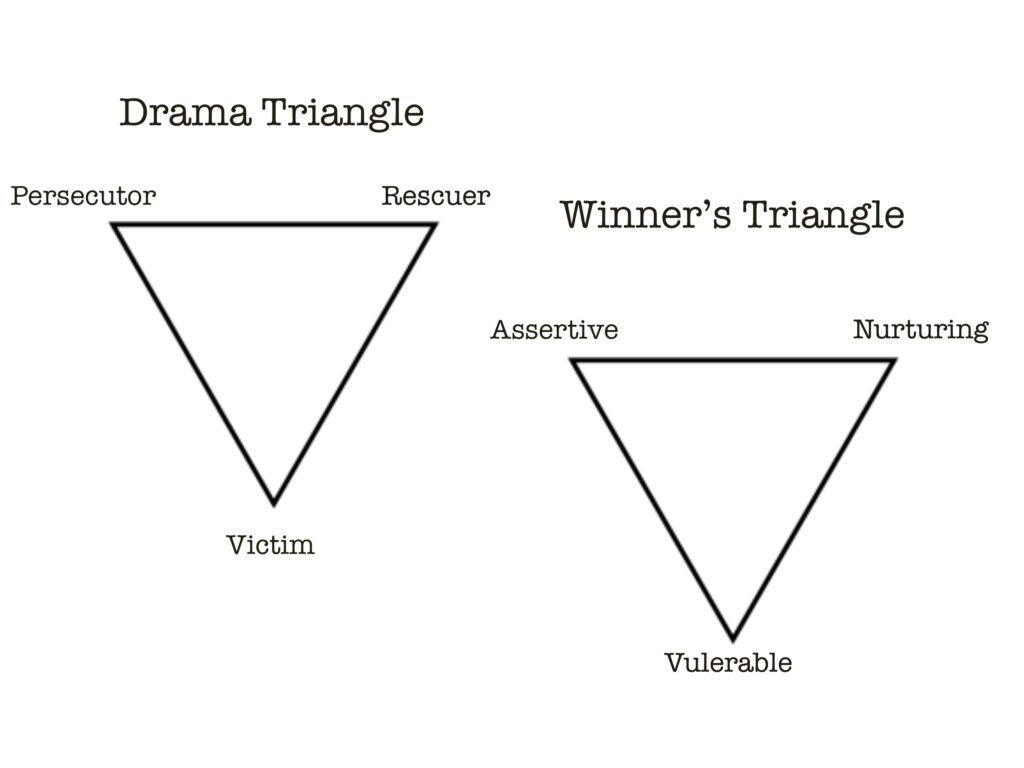
Getting hooked into a drama happens quickly, especially in close relationships. The following article will help you understand the different roles played and how to step out of the cycle altogether.
What Drama?
Stephen Karpman has first described the drama triangle in an article in 1968. The model shows the three positions people have often taken in interactions: the victim, the persecutor and the rescuer.
The situation usually starts with a person taking the role of a victim or a persecutor. Once the bait is out, other people are lured into playing the game and take on other roles. The game then continues by the two (or three) players switching roles: the victim turns into the rescuer, the rescuer switches to persecutor or the rescuer becomes a victim exclaiming: I just wanted to help!
See what you made me do?
Recently a client described an interaction between her father and herself.
He found her folding boxes and said: “You can take my cardboard to the recycling as you’re just doing yours.”
She responded in an assertive way by saying: “If it all fits into the car, that will be fine.”
He added: “But otherwise I have to take it all the way to…”
She said: “The recycling place is open tomorrow morning, you can take it on your way.”
He, in an annoyed, angry tone of voice: “Oh well, just forget it. If you don’t want to help me then I’ll just take it all the way to…”
As the example shows, the father switches between the victim (poor me) and the persecutor (passive-aggressive tone of voice). The daughter answered assertively, which is the way out of the drama cycle. At a later stage, however, she became really annoyed at him and his reaction and noticed that he was able to pull her into his game. It didn’t verbally come out but she felt the effect while discussing it in our session.
Let me out of here!
Get over to the Winner’s Triangle! The same triangle has three winner’s positions: The vulnerable one also seen as a creator, aware of their own needs and being able to state them; the challenger, who assertively makes their point without becoming dominating or aggressive; and the coach or nurturer, someone who sees the individual as capable of making their choices or solving their own problems.
Awareness and a conscious shift to the positions mentioned will interrupt the drama cycle and allow you to make informed choices and focus on outcomes instead of problems. This dynamic is much more empowering and will leave you feeling satisfied.





